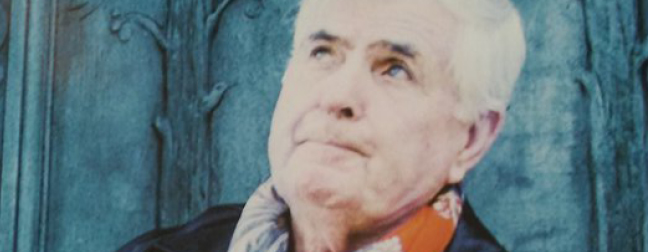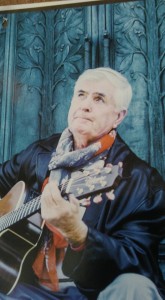By Msgr Francis A. Carbine
“For my first day attending St. John’s Primary School in Moy, County Tyrone, my mother made me a suit of soft brown fabric with a Nehru jacket. I wore short pants reaching to my knees.” Seventy years later, this memory is keenly alive for Brian McCaul, resident of Havertown.
Brian, born in Ballygawley, moved with his family to a thatched house in Moy. Here he studied by light of an oil lamp, drew water from the well, listened to a battery radio, played football, worked with his father’s horses, and by age 10 was driving a tractor. He also had six brothers and four sisters.
“When I was 10 years old, I used my racing bike to cross from Tyrone, Northern Ireland, to County Monaghan in the Irish Republic. Here I could breathe the air of a ‘Free Ireland.’ I also bought tobacco and butter to smuggle back across the border.”
Born in 1941, Brian finished his schooling at age 14, and was immediately hired by a construction company in nearby Dungannon.
His work took him to Scotland where, for a few months, he sold encyclopedias. “In the fifties, there was no work in the North of Ireland, and less work in Scotland. While the job kept me alive, I would not recommend it to anybody!”
He then moved on to England. He worked for a brewery in Leeds, and in London for Thames Television. For seven years, Brian worked in the Midlands as a mechanic for a company that laid underground cable.
“For four years I was a police officer in Derby, also the Midlands. One of my duties was to raid bars that overlooked drinking after hours. When we raided, the pub would be packed with Irishmen. I played football with many of them.
“My task was to take down their names — names that I did not recognize. I explained to my sergeant: ‘I can only go by the names that they give me!’”
From 1962 until 1969, Brian worked laying cables for electrical lines on job sites in England. “I was a supervisor, and I didn’t get into the trenches with the men who were called ‘navvies.’
Some were as young as 16; others, as old as 66. Their lives were not easy. They were, however, ‘good workers – diligent workers.’ Some navvies moved on to become successful contractors in Canada and Europe.”
Patrick MacGill, “the Navvy Poet,” described navvies as “rude, romantic men … scarecrows of civilization … children of the dead end.”
The Troubles, that began in Ireland in the Sixties, climaxed in January 30, 1972 with the “Bogside Massacre” – “Bloody Sunday” – in Derry. British army soldiers killed 14 innocent persons. The Troubles escalated!
“My brother Brendan had a pub in Clogher, Tyrone, that was blown up in 1971 – ‘leaving not a brick upon a brick.’ I began to think about emigrating.
“By way of Canada, I arrived in Southwest Philadelphia in January, 1977, during a snowstorm. Because of the deep snow, I couldn’t get out of my brother’s house to extend my visa. When I finally got to the Immigration Office, I had overstayed my visa by one day.
“The authorities put me into the “immigration tank” for four hours. I explained my situation, filled out papers, and obtained a green card at end of April. Cost to me: $192.
Brian went to work in construction, and in 1979 he bought a landscaping company in Bucks County. Today he is retired.
Reflecting on the Ireland of his boyhood, Brian says, “When we were young, we didn’t have many material things. However, we were never short of food, and we had sports – soccer and Gaelic football.
“I played for Tir na Og. Today’s Ireland is different. Many have fallen into the material grasp that will be hard to escape from.
“My sister Maeve was a deaf mute who rose to supervisor in a linen factory. She taught her mates sign language so that they could communicate. My brother Dermot became a priest and superior with the Society of the African Missions.”
In September, 2016, Brian hopes to be back in Ballygawley – a town described as having one street that turns at a right angle.



